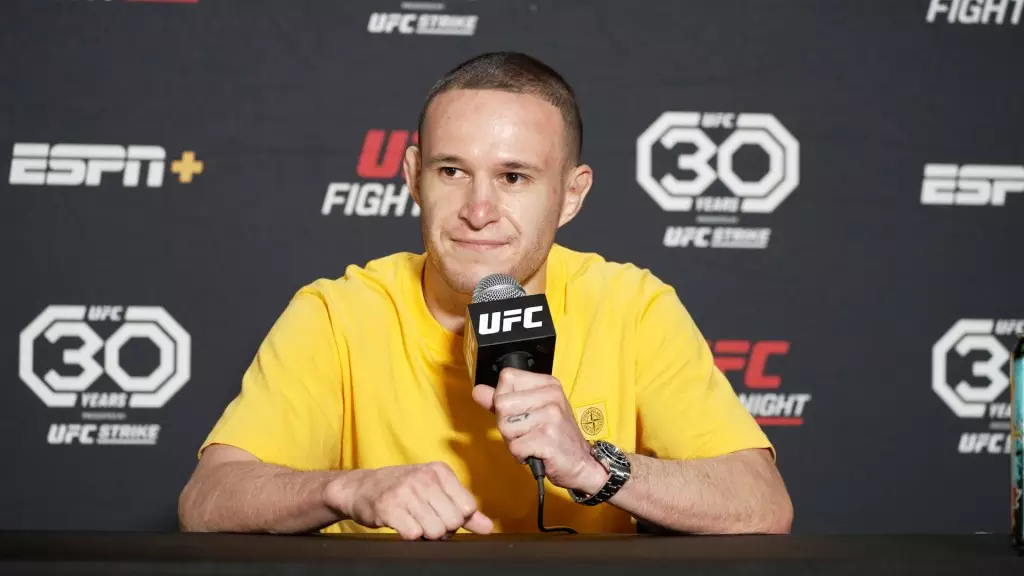The upcoming UFC 310 co-main event scheduled for December 7, where Kai Asakura is set to challenge Alexandre Pantoja for the UFC flyweight championship, has stirred significant controversy within the mixed martial arts community. Asakura (21-4 MMA, 0-0 UFC), a former RIZIN champion, will make his UFC debut with instant access to a title shot, a move that has raised eyebrows—particularly from veteran fighters like Kai Kara-France.
Kai Kara-France Speaks Out
Kara-France (25-11 MMA, 8-4 UFC), a top contender in the flyweight division, did not hold back when discussing Asakura’s rapid rise to championship contention. In an interview with Sky Sports NZ, he expressed his disapproval, stating, “They’ve got the wrong Kai,” pointing out the peculiar nature of awarding a title shot to a fighter who has yet to compete in the UFC. Kara-France’s frustrations highlight a broader issue within the sport: the emphasis on marketability over meritocracy.
Kara-France, who had recently scored a first-round TKO against Steve Erceg at UFC 305, felt that his performances and those of other fighters in the division were being overlooked in favor of a newcomer simply because of his name. He stated that fighters should at least demonstrate their readiness through a few bouts in the UFC before being offered such opportunities. This sentiment resonates with many in the community who believe that a fair title contention process should prioritize fighters who have consistently proven themselves within the organization.
The crux of Kara-France’s criticism seems to lie in the juxtaposition of merit and marketability in the UFC’s decision-making process. In the fast-paced and competitive realm of MMA, promotional matches can often overshadow the validity of a title trajectory. While it is undeniable that new fighters can bring excitement and attention to their divisions, there is a growing concern that these promotional decisions could compromise the integrity of championship rankings.
As Kara-France pointed out, “You’ve got to at least show your worth,” emphasizing that the current dynamic may leave seasoned competitors feeling undervalued. With fighters like Kara-France and others having engaged in a relentless grind against the toughest opponents, the notion of a newcomer jumping the queue raises questions about fairness and respect within the sport.
Ultimately, the question remains: can Asakura live up to the expectations that come with a title shot? If he does succeed in securing victory against champion Alexandre Pantoja, his triumph could lend credence to the UFC’s decision, vindicating their approach of prioritizing excitement and narrative. Conversely, if he falters, it could ignite further discussions about the fairness of promotional politics in the sport.
In the end, the mixed messages from the UFC’s decision-makers compel fans and fighters alike to rethink how title chances are allocated. Regardless of the outcome in December, what remains crucial is the need for the sport to maintain an atmosphere where merit counts as much as marketability, thereby ensuring that all fighters feel their hard work and talent are acknowledged.

